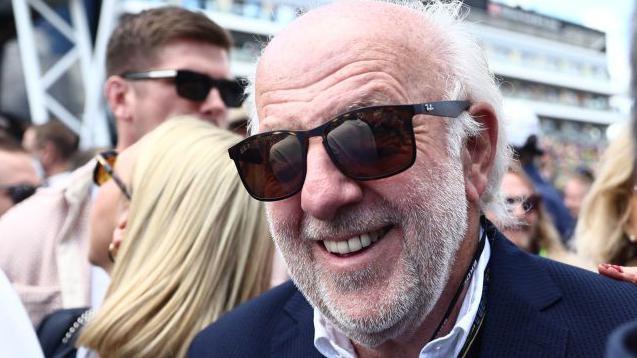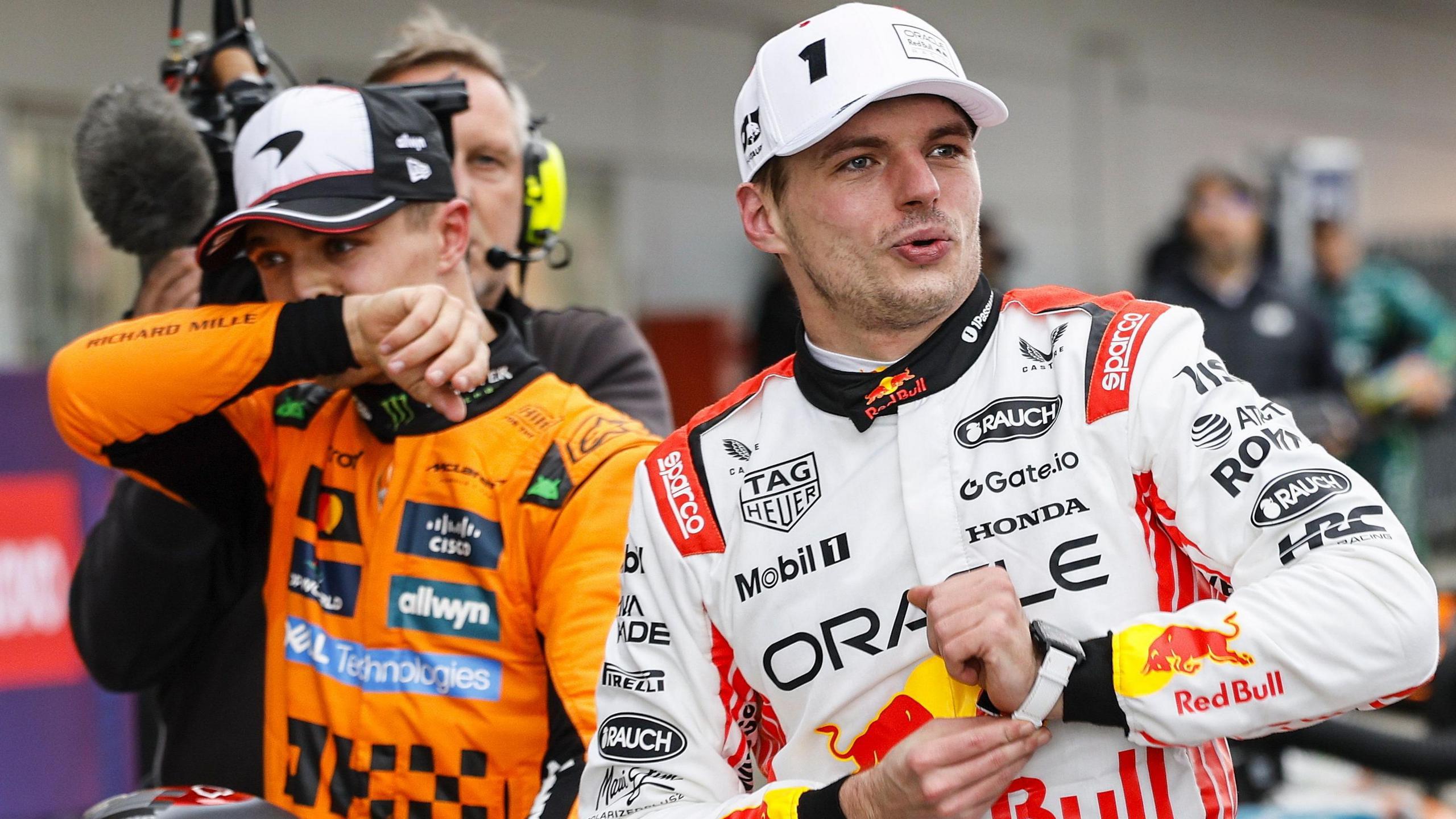Richards accuses FIA of 'shift of moral compass'

David Richards has held senior positions at former F1 teams Benetton and BAR
- Published
MotorsportUK chairman David Richards says there has been "a shift of the moral compass" of the president of world governing body the FIA.
The accusation by Richards against FIA president Mohammed Ben Sulayem comes in an open letter, external that accuses the FIA of "disregarding" his concerns about "levels of transparency, accountability and integrity" in the organisation.
The row comes in the wake of Richards being barred from attending a meeting of the FIA world council because he refused to sign a confidentiality agreement demanded of members.
Richards' remarks come in response to the FIA's answer, external to a previous open letter explaining his concerns about Ben Sulayem.
Richards says the FIA's letter showed a "disappointing… disregard for the very real concerns that have been expressed, not just by myself, but a growing number of people, that the governance and constitutional organisation of the FIA is becoming ever more opaque and concentrating power in the hands of the president alone".
The 72-year-old says that his current concern is "with a requirement to sign an amended confidentiality agreement that doesn't contain a clear procedure for evaluating a breach nor an independent process in the event of a dispute".
Legal action, which Richards threatened last month over the issue, is continuing in the background.
The FIA's response to Richards, written by its general manager Alberto Villarreal, reiterates its previous public response to the allegation, by saying that confidentiality agreements such as the one it has asked Richards to sign are "a standard part of business".
Villarreal adds: "We struggle to understand your reluctance to be bound by the same terms and conditions as your fellow members, given you acknowledge the damage the numerous leaks from the world motorsport council [WMSC] have made to the FIA's mission."
However, while Richards has acknowledged that the media had gained access to some sensitive information in the past three years, he has not previously done the same with the existence of leaks from the WMSC.
Richards' latest letter adds: "I very much hope that despite Alberto's letter, dismissing these material issues, we might yet have a sensible discussion with the legal counsel of the FIA and resolve these points.
"They are not insurmountable, but as currently written they are wholly inappropriate.
"So much so that various other parties have expressed the same concerns which has resulted in adaptations to the agreements that they have signed.
"That opportunity has not yet been afforded to me."
That is a reference to F1 commercial rights holder Liberty Media being given a revised, less strict, confidentiality agreement to sign after objecting to the original one.
Richards says that the FIA should be proud of "many things" it has recently achieved.
"But we cannot allow a shift of the moral compass of our leadership to simply dismiss any request for transparency and open discourse," he adds.
Richards says he hopes to meet Ben Sulayem at this weekend's Bahrain Grand Prix to discuss the matter.
The FIA refused to give an additional comment beyond its response to Richards' original complaint.
The backdrop to the complaint is that Ben Sulayem is up for re-election this year.
No rival candidate has yet put themselves forward to oppose him, but there is said to be at least one waiting in the wings.
Richards is too old to stand, as there is an upper age limit of 70 for the presidential election.
Meeting over engine plans
Bahrain will also see a meeting of F1's engine manufacturers with the FIA and F1 to discuss Ben Sulayem's plan to drop the new 2026 engine formula before its planned end in 2031 and re-introduce naturally aspirated V10 engines.
The V10 plan is set to be rejected by the manufacturers.
The idea of abandoning the 2026 engine regs and sticking with the current engines for a couple of years before introducing a new power unit has also been rejected, insiders have told BBC Sport.
However, it remains possible that there will be a change of the 2026 engine rules before their current five-year period is over.
There is a concern that the new engine's higher energy recovery demands - which have led to complicated chassis rules that include moveable aerodynamics to increase the cars' harvesting capacity by increasing top speeds - could make the racing worse.
There is also a desire to further simplify the rules to make future engines cheaper.
Although that was the plan with the 2026 engines, the manufacturers have spent hundreds of millions of pounds researching and developing them.
FIA single-seater director Nikolas Tombazis has also told F1 stakeholders that the governing body wants to prevent engines being a performance differentiator in F1.
Related topics
- Published8 April

- Published6 April
